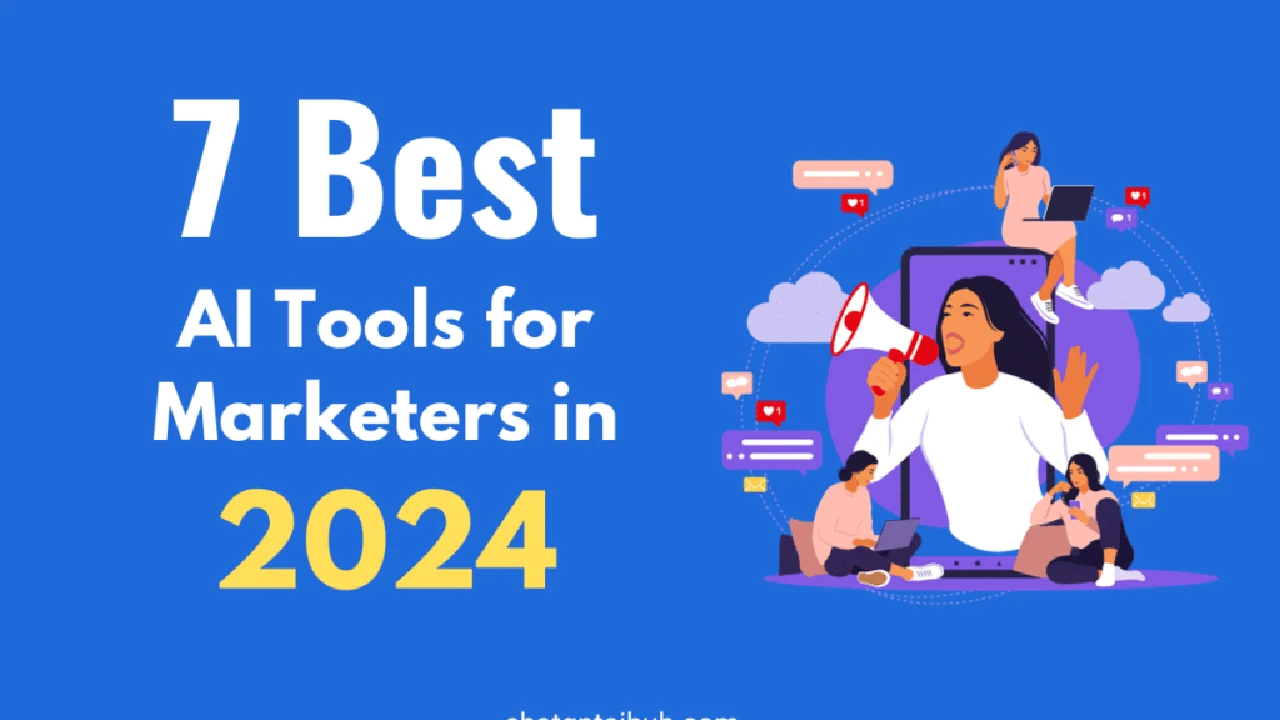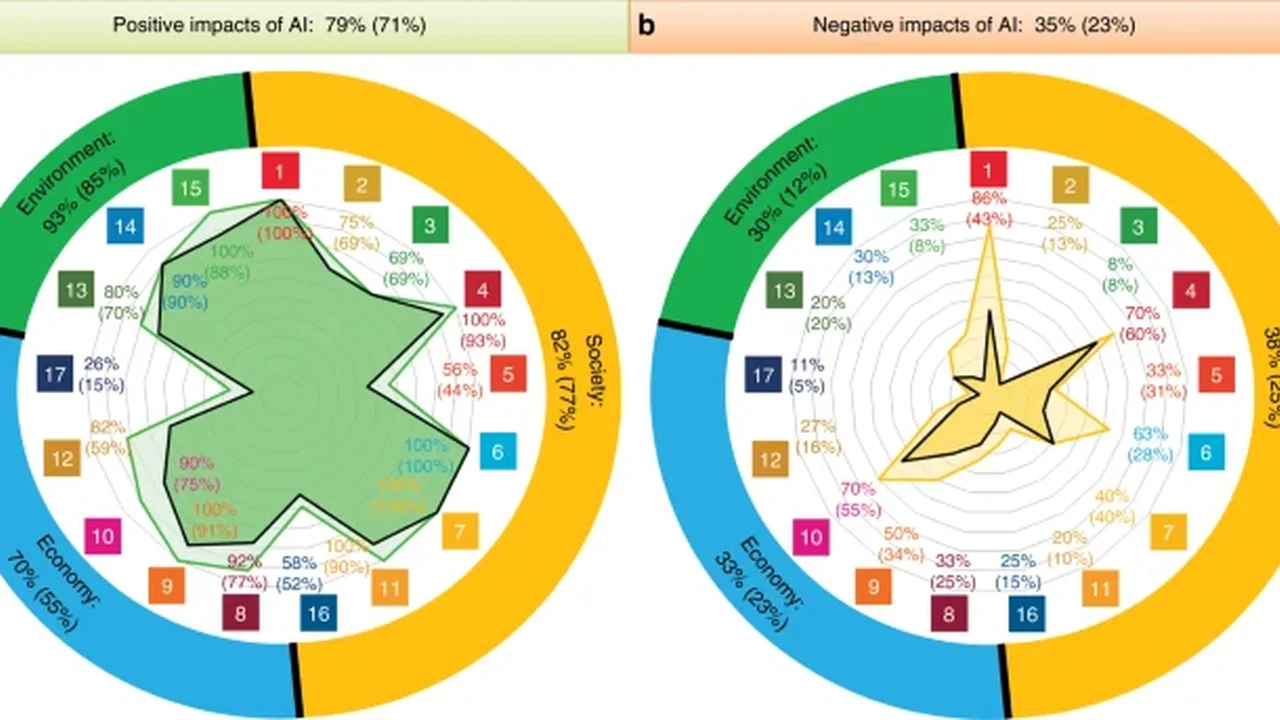AI in Law: Automating Legal Research and Processes
Stay informed about the latest trends and insights in AI by following top AI experts and thought leaders. Discover the best AI blogs to read in 2024 for career advancement, industry updates, and innovative ideas.

Top AI Blogs for Beginners Understanding AI Fundamentals
So, you're diving into the world of Artificial Intelligence? Fantastic! It's a rapidly evolving field, and staying on top of the latest trends and technologies can feel overwhelming. But don't worry, there are some incredible AI blogs out there that can help you understand the fundamentals and keep you informed. These blogs often break down complex concepts into easily digestible pieces, making them perfect for beginners.
One of the best blogs for beginners is Machine Learning Mastery by Dr. Jason Brownlee. Dr. Brownlee provides practical tutorials and step-by-step guides to help you learn and implement machine learning algorithms. He covers a wide range of topics, from basic linear regression to more advanced deep learning techniques. His focus is on practical application, so you'll be coding and building models from the very beginning. It’s a fantastic resource for getting your hands dirty and seeing how AI works in real-world scenarios.
Another great option is the Distill blog. While it might seem a bit more advanced at first glance, Distill is known for its visually stunning and interactive explanations of complex AI concepts. They use animations and visualizations to help you understand the underlying principles of machine learning algorithms. It's a great way to develop a deeper, more intuitive understanding of AI.
Finally, don't forget to check out the Towards Data Science publication on Medium. This is a community-driven blog where data scientists and AI researchers share their knowledge and insights. You'll find articles on a wide range of topics, from the latest research papers to practical tips for building AI applications. Because it's a community blog, the quality can vary, but there's always something interesting to learn.
Leading AI Blogs for Industry News and Trends Stay Ahead of the Curve
The AI industry moves at lightning speed. New research papers, groundbreaking applications, and ethical considerations are constantly emerging. To stay ahead of the curve, you need to follow blogs that provide up-to-date industry news and analysis. These blogs will keep you informed about the latest trends, helping you identify new opportunities and potential challenges.
VentureBeat's AI section is a fantastic resource for industry news. They cover a wide range of topics, from venture capital investments in AI startups to the latest developments in AI hardware and software. They also provide in-depth analysis of the business implications of AI, making it a valuable resource for entrepreneurs and investors.
MIT Technology Review's AI section offers a more academic perspective on AI news. They cover cutting-edge research and explore the potential societal impact of AI technologies. They also have a team of experienced journalists who provide insightful analysis of the latest developments.
The Batch, a newsletter by Andrew Ng (co-founder of Coursera and Google Brain), is another must-read for anyone interested in AI industry news. Ng provides a weekly summary of the most important developments in AI, along with his own commentary and analysis. It's a concise and informative way to stay on top of the latest trends.
Best AI Blogs for Deep Learning and Neural Networks Mastering Advanced Techniques
Deep learning and neural networks are at the heart of many of the most impressive AI applications we see today, from image recognition to natural language processing. If you want to master these advanced techniques, you need to follow blogs that provide in-depth tutorials and insights.
Andrej Karpathy's blog is a goldmine for anyone interested in deep learning. Karpathy, a former director of AI at Tesla, provides clear and concise explanations of complex concepts, along with practical code examples. His blog is a bit more technical than some of the others on this list, but it's well worth the effort if you're serious about learning deep learning.
Colah's blog (also known as Christopher Olah's blog) is another excellent resource for deep learning. Olah is known for his visually stunning and intuitive explanations of neural networks. He uses diagrams and animations to help you understand how these algorithms work under the hood.
OpenAI's blog is a great place to stay up-to-date on the latest research in deep learning. OpenAI is a leading AI research organization, and their blog features articles on a wide range of topics, from reinforcement learning to generative models.
AI Blogs focused on Ethical Considerations and Responsible AI Navigating the Challenges
As AI becomes more powerful and pervasive, it's crucial to consider the ethical implications of these technologies. Issues such as bias, fairness, and privacy are becoming increasingly important. To navigate these challenges, you need to follow blogs that focus on ethical considerations and responsible AI.
AI Now Institute's blog is a leading resource for research and analysis on the social and ethical implications of AI. They cover a wide range of topics, from algorithmic bias to the impact of AI on labor markets. Their blog is a valuable resource for policymakers, researchers, and anyone interested in ensuring that AI is used responsibly.
Partnership on AI's blog is another great place to stay informed about ethical issues in AI. The Partnership on AI is a multi-stakeholder organization that brings together researchers, industry leaders, and civil society groups to address the challenges of AI ethics.
Towards Data Science also features numerous articles on AI ethics. Just search for "AI ethics" or "responsible AI" to find a wealth of perspectives on this important topic.
Specific AI Product Reviews and Comparisons Choosing the Right Tools
Okay, so you've been reading up on AI, understanding the trends, and even diving into deep learning. Now you're ready to actually *use* some AI tools. But with so many options available, how do you choose the right ones? Here are a few specific AI product reviews and comparisons to get you started:
1. Cloud AI Platforms: AWS vs. Google Cloud vs. Azure
These cloud platforms offer a comprehensive suite of AI services, from machine learning to natural language processing to computer vision. They're a great option if you want a fully managed AI environment.
* AWS (Amazon Web Services): AWS offers a wide range of AI services, including SageMaker (for building and training machine learning models), Rekognition (for image and video analysis), and Comprehend (for natural language processing). AWS is a mature platform with a large community and extensive documentation. * Use Cases: E-commerce personalization, fraud detection, customer service automation. * Pricing: Pay-as-you-go. You only pay for the resources you use. Pricing varies depending on the service and the amount of data you process. * Pros: Mature platform, wide range of services, large community. * Cons: Can be complex to navigate, pricing can be unpredictable. * Google Cloud Platform (GCP): GCP offers a similar set of AI services to AWS, including Vertex AI (for building and training machine learning models), Cloud Vision API (for image analysis), and Cloud Natural Language API (for natural language processing). GCP is known for its innovative AI research and its focus on deep learning. * Use Cases: Image and video search, content recommendation, language translation. * Pricing: Pay-as-you-go. Pricing varies depending on the service and the amount of data you process. * Pros: Innovative AI research, strong deep learning capabilities, competitive pricing. * Cons: Smaller community than AWS, some services are less mature. * Azure (Microsoft Azure): Azure offers a comprehensive suite of AI services, including Azure Machine Learning (for building and training machine learning models), Computer Vision API (for image analysis), and Cognitive Services (for natural language processing). Azure is tightly integrated with other Microsoft products, such as Windows and Office. * Use Cases: Enterprise AI applications, chatbots, predictive maintenance. * Pricing: Pay-as-you-go. Pricing varies depending on the service and the amount of data you process. * Pros: Tight integration with Microsoft products, strong enterprise capabilities, competitive pricing. * Cons: Smaller community than AWS, some services are less mature.2. No-Code AI Platforms: Make AI Accessible to Everyone
Don't know how to code? No problem! No-code AI platforms allow you to build and deploy AI applications without writing a single line of code. These platforms are perfect for business users, marketers, and anyone who wants to leverage AI without technical expertise.
* Obviously AI: This platform allows you to connect to your data sources (e.g., spreadsheets, databases) and automatically build machine learning models. You can use these models to predict future outcomes, identify key drivers, and make data-driven decisions. * Use Cases: Sales forecasting, customer churn prediction, marketing campaign optimization. * Pricing: Subscription-based. Pricing varies depending on the number of users and the features you need. * Pros: Easy to use, requires no coding, affordable. * Cons: Limited customization options, may not be suitable for complex AI applications. * MonkeyLearn: This platform specializes in natural language processing. You can use it to analyze text data, extract key information, and automate tasks such as sentiment analysis and topic classification. * Use Cases: Customer feedback analysis, social media monitoring, brand reputation management. * Pricing: Pay-as-you-go or subscription-based. Pricing varies depending on the number of text units you process. * Pros: Powerful NLP capabilities, easy to use, affordable. * Cons: Limited to natural language processing, may not be suitable for other AI tasks.3. AI-Powered Content Creation Tools: Automating the Writing Process
Struggling to create compelling content? AI-powered content creation tools can help you automate the writing process and generate high-quality articles, blog posts, and marketing copy.
* Jasper (formerly Jarvis): This platform uses AI to generate original content based on your input. You can use it to write blog posts, articles, social media posts, and even books. * Use Cases: Blog post creation, social media marketing, email marketing. * Pricing: Subscription-based. Pricing varies depending on the number of words you generate. * Pros: High-quality content, easy to use, saves time. * Cons: Can be expensive, requires careful editing. * Copy.ai: This platform offers a variety of AI-powered tools for generating marketing copy, including headlines, taglines, and product descriptions. * Use Cases: Ad copywriting, website copywriting, email marketing. * Pricing: Subscription-based. Pricing varies depending on the number of projects you create. * Pros: Easy to use, affordable, generates a variety of copy options. * Cons: Can be repetitive, requires careful editing.SEO Optimization Strategies for AI Blogs Driving Traffic and Visibility
Creating great content is only half the battle. You also need to optimize your AI blog for search engines so that people can actually find it. Here are some SEO optimization strategies to help you drive traffic and visibility:
* Keyword Research: Identify the keywords that your target audience is searching for and incorporate them into your blog posts. Use tools like Google Keyword Planner and Ahrefs to find relevant keywords. * On-Page Optimization: Optimize your blog posts for search engines by using relevant keywords in your title tags, meta descriptions, and headings. Also, make sure your content is well-written, informative, and engaging. * Link Building: Build backlinks to your blog from other reputable websites. This will help improve your search engine rankings. * Content Marketing: Promote your blog posts on social media and other channels to reach a wider audience. * Technical SEO: Make sure your blog is technically sound by optimizing your website speed, mobile-friendliness, and site architecture.Staying Updated with AI Blogs A Continuous Learning Journey
The world of AI is constantly changing, so it's important to stay updated with the latest trends and developments. Following AI blogs is a great way to do this. Make sure to regularly check the blogs listed above and subscribe to their newsletters. Also, consider attending AI conferences and workshops to learn from experts and network with other professionals.
Remember, staying informed about AI is a continuous learning journey. By following the right blogs and resources, you can stay ahead of the curve and leverage the power of AI to achieve your goals. Happy reading!
:max_bytes(150000):strip_icc()/277019-baked-pork-chops-with-cream-of-mushroom-soup-DDMFS-beauty-4x3-BG-7505-5762b731cf30447d9cbbbbbf387beafa.jpg)






